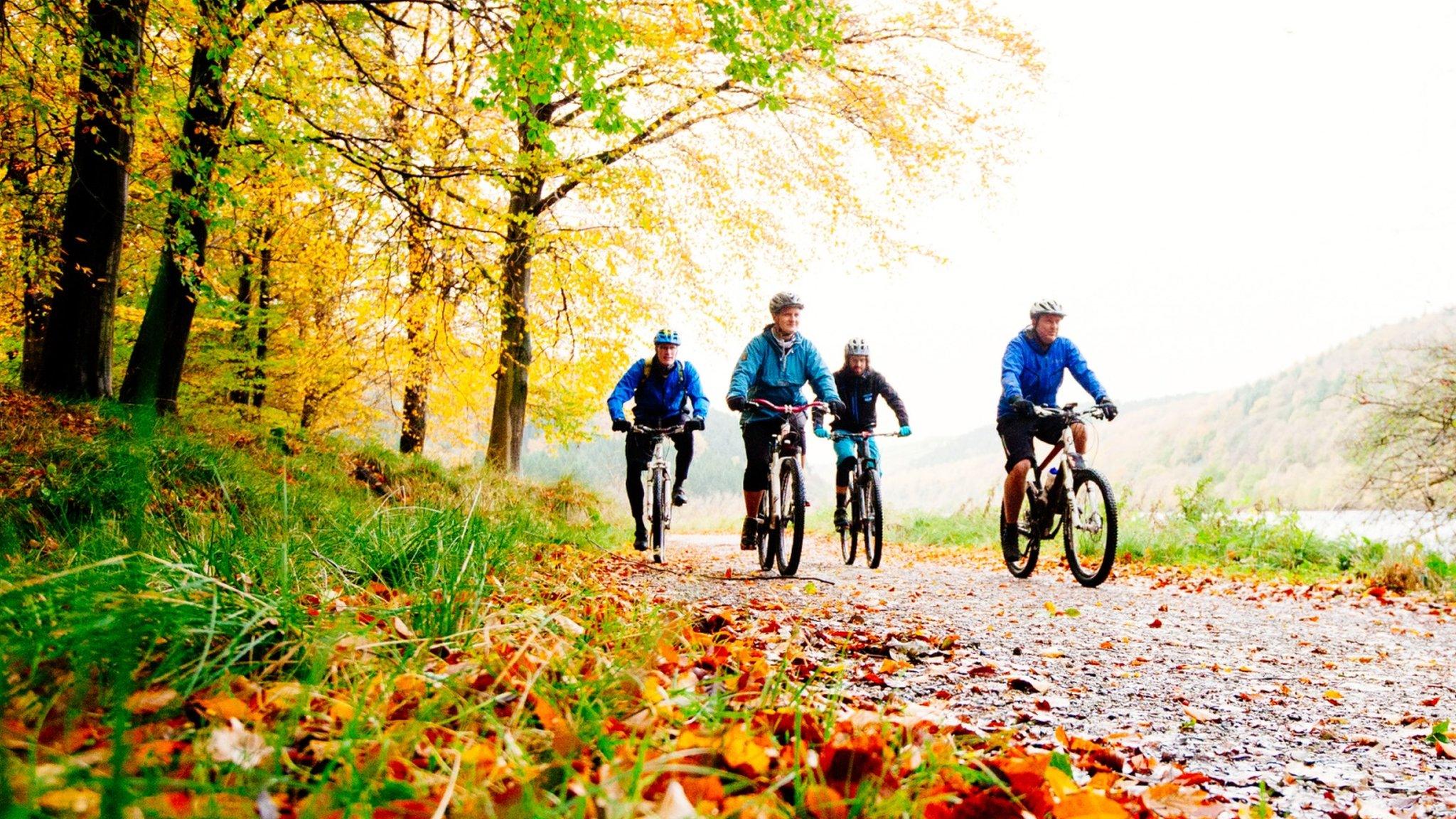Get Inspired: How to get into Mountain Biking
- Published
Mountain bike explained
Mountain biking provided some of the most thrilling sights at London 2012 as the fearless riders navigate the tricky climbs and gruelling descents of the 5km hillside course.
The event tests the competitors' physical endurance to the limit as they hare across the rocky terrain for up to one hour and 45 minutes.
But, the punishment is not just reserved for the athletes themselves - the rulebook allows running repairs to be carried out as tyres go flat and bike chains snap.
These factors mean the attrition rate is so high that of the 50 riders who started the men's race in the 2008 Beijing Olympics, just 28 finished.
Why is it good for you?
Mountain bike riding is an exciting and physically demanding sport, which burns approximately 559 calories per hour.
The strain of keeping the bike in motion over long distances of challenging terrain increases the heart rate, lowers blood pressure and improves endurance.
As the thigh, calf and hip muscles are in constant use, it is an effective way to help build lower-body strength.
Unlike other high-energy sports, bike riding has a much lower risk of injury as there is none of the physical contact between athletes found in football or rugby, while it is much gentler on the knee and ankle joints than long-distance running.
Biking does not only have to be done as a sport. A study by the International Bicycle Fund found commuters who begin to ride their bicycles to and from work instead of driving lose an average of 13 pounds during their first year of biking.
Get involved
Approximately two million people in Britain cycle at least once a week, and there are more than 80,000 members of cycling clubs., external
There are four main mountain bike disciplines, with the downhill and 4-cross requiring nerve, fitness and great bike control as competitors hurtle down hazard-strewn tracks. The cross-country - which is used in the Olympics - and enduro/marathon put the emphasis more on sheer physical fitness.
Before hitting the course, it is essential to wear safety equipment such as a helmet, cycling gloves and elbow and knee pads. It is recommended that a long sleeved top be worn for added protection.
Some clubs allow members to hire bikes and helmets. A decent starter mountain bike costs around £250-£300.
Training days and taster schemes are run for people of all ages and abilities, external throughout the year. Visit the British Cycling,, externalCycling Ireland,, externalScottish Cycling, external and Welsh Cycling, external websites for more information.
For regional and national events, membership of British Cycling, external or Cycling Ireland, external is required. There are a number of bands related to how regularly you wish to compete.
Small fees are often required to take part in the 3,000+ meets held annually throughout the country.
For parents looking to get their children started in competitive racing, British Cycling are running a number of events for under-16s throughout the United Kingdom this year. Visit the Go-Ride Racing, external website for more details.
History
Competitive off-road biking began in France in the 1940s and by 1955, the "Roughstuff Fellowship" was established in Great Britain. The first use of the term "mountain bicycle" is believed to have come in Oregon, USA, in 1966.
Around this time, Londoner Geoff Apps began experimenting with bicycles adapted to wet and muddy conditions. American Joe Breeze is credited with introducing the first purpose-built mountain bike in 1978, with mass-produced bikes appearing shortly after.
The first world championships took place in Durango, USA, in 1990 before mountain biking's ascension from a little-known minority activity to a mainstream sport was capped six years later in Atlanta when it made its Olympic debut.
More on the IOC website, external
Are you inspired to try Mountain Biking? Or maybe you are an enthusiast already? Get in touch & tell us your experience of the activity by tweeting us on @bbcgetinspired, external or email us on getinspired@bbc.co.uk., external
See our full list of activity guides for more inspiration.
- Published5 September 2014
